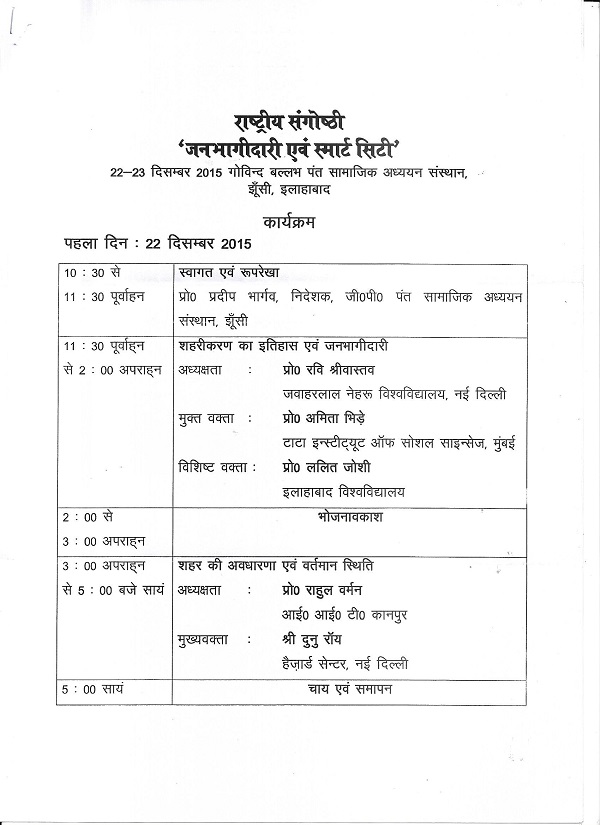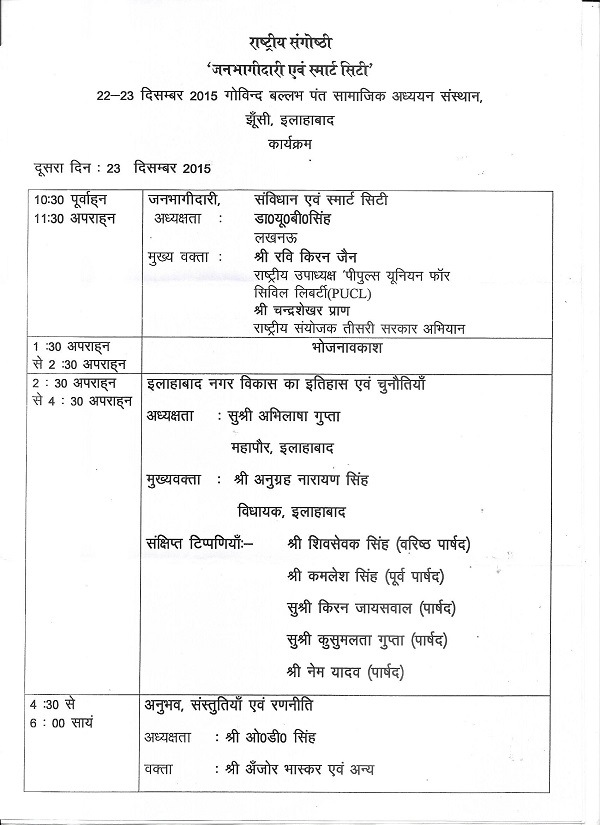Summary of the Public Consultation by Vigyan Foundation, Oxfam India and G.B. Pant Institute, Allahabad
The Centre for Internet and Society, Bangalore (CIS) is researching the 100 Smart City Scheme from the perspective of Big Data and is seeking to understand the role of Big Data in smart cities in India as well as the impact of the generation and use of the same. CIS is also examining whether the current legal framework is adequate to deal with these new technologies. It was in this background that CIS attended a part of the workshop.
At the outset the organizers had noted that there will be no discussion on technology and its adoption in this particular workshop.. The format involved a speaker providing his/her viewpoint on the topic concerned and the discussion revolved mainly around problems relating to traffic, parking, roads, drainage, etc. and there was no discussion of technology or how to utilise it to solve these problems. From the discussions CIS has had with certain people who are quite involved with these public consultations, the impression that we have is that the solutions to these problems were not very complicated and required only some intent and execution, and if that was achieved it would go a long way in improving the infrastructure of the city. This perspective raises the question of whether or not India needs 'Smart Cities' to improve the life of residents or if basic urban solutions are adequate and are in fact needed to lay the foundation for any potential smart city that might be established in the future.
It is quite interesting to see the difference in the levels at which the debate on smart cities is happening, in that when the central government talks about smart cities they try to highlight technology and other aspects such as smart meters, smart grids, etc. while the discussion on the ground in the actual cities is currently at a much more basic stage. For example the government website for the smart city project, while describing a smart city, mentions a number of “smart solutions” such as “electronic service delivery”, “smart meters” for water, “smart meters” for electricity, “smart parking”, Intelligent Traffic Management”, “Tele-medicine”, etc. Even in all the major public service announcements on the smart city project, the government effort seems to be to focus on these “smart solutions”, projecting technology as the answer to urban problems. However those in the cities themselves appear to be more concerned with adequate parking, adequate water supply, proper roads, waste disposal, etc. This difference in approach is only representative of the yawning gap between the mindspace of those who conceive these schemes and market them on the one hand and those who are tasked with implementing the schemes on the other hand as well as the realities of what cities in India need to address problems related to infrastructure and functioning. However the silver lining in this scenario, atleast on a personal level, is that the people on the ground, are not blindly turning to technology to solve their problems but actually trying to look for the best solutions regardless of whether it is a technology based solution or not.
Agenda





